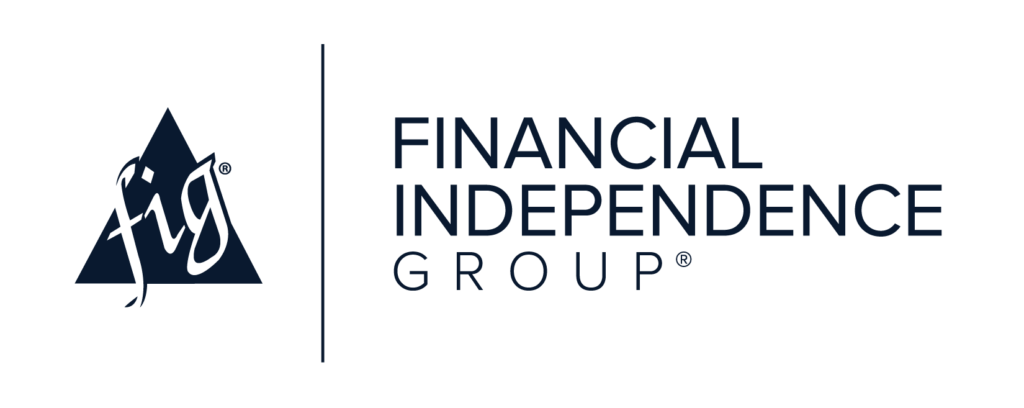Immerse yourself in the spirit of gratitude and reflection and discover how it transforms mindsets, influences decision-making, and becomes the secret ingredient in crafting a sustainable and purposeful financial journey.
As the holiday season approaches, we find ourselves immersed in the spirit of gratitude and reflection. Thanksgiving offers a unique opportunity to delve into the profound impact of gratitude on overall well-being.
As a financial professional, you may often navigate the intricate landscape of your clients’ lives, considering both their monetary goals and their holistic well-being.
Just as a well-cooked turkey requires the right blend of spices, recognizing the symbiotic relationship between gratitude and overall mental and emotional health is essential. Gratitude serves as the cornerstone for a fulfilling existence, adding that extra zing of positive emotions and creating a resilient mindset.
In this season of financial feasts, let gratitude be the secret ingredient that elevates the banquet of your client’s well-being to a new, more positive level.
Feasting on Gratitude: How to Elevate Financial Well-Being
Within this industry, understanding the impact of gratitude on our clients’ lives enables you to provide more comprehensive and tailored financial planning.
Let’s explore how cultivating a grateful mindset can influence various aspects of financial planning, from personal finance decisions to reflecting on the necessity of strong support systems.
The Psychological Benefits of Gratitude
As professionals guiding others in their financial journeys, it’s crucial to delve into the profound psychological benefits that gratitude brings to individuals. When clients embrace gratitude, they unlock a positive outcomes that extend beyond their financial portfolios.
Improved Mental Health
Gratefulness has a transformative effect on mental well-being. By fostering a mindset of appreciation, individuals can mitigate the impact of stressors and cultivate resilience in the face of challenges. Understanding the pivotal role of mental health in decision-making will empower you to guide clients toward financial choices aligned with their well-being.
Reduced Stress and Anxiety
The financial landscape can be inherently stressful. Gratitude acts as a powerful antidote, reducing stress and anxiety levels. When clients approach financial challenges with a grateful perspective, they’re better equipped to navigate uncertainties and make informed decisions. Recognizing the intersection of gratitude and stress management positions you to offer complete support.
Enhanced Overall Well-Being
Appreciation contributes significantly to an individual’s overall sense of well-being. By acknowledging and appreciating their financial successes, clients can derive a deeper satisfaction that transcends monetary achievements alone. This understanding becomes pivotal as you guide clients not only toward financial prosperity but also toward a more fulfilling life.
Related: The Psychology of Financial Decision-Making: Understanding Behavioral Biases to Improve Client Outcomes
How to Use Gratitude to Set Financial Priorities
As you carve your way through the financial intricacies of client goal-setting, garnish your approach with the flavor of gratitude. It’s not just about numbers; it’s about the joy of distinguishing needs over luxuries and infusing your clients’ future finances with the warmth of thankfulness.
Here’s how gratitude becomes the secret ingredient in crafting a sustainable and purposeful financial journey:
Prioritizing Necessities Over Luxuries
Gratitude plays a pivotal role in helping clients distinguish between necessities and luxuries. By acknowledging and appreciating the value of their essential needs, clients can make informed decisions about where to allocate their resources. This mindset shift fosters a more sustainable and responsible approach to financial priorities.
Aiming for Future Goals With Perspective
Guide clients in setting future financial goals with a lens of thankfulness. When financial situations are driven by a sense of appreciation for future possibilities rather than a fear of uncertainty, clients become more purposeful and are more likely to adhere to their plans.
Highlight the Impact of Gratitude on Financial Decision-Making
With financial decision-making, gratitude serves as a compass, directing clients toward choices that align with their overall well-being.
Avoiding Financial Stress Through Gratitude
Financial stress is a common challenge for many clients and prospects. By fostering a mindset of gratefulness, clients can navigate financial challenges with resilience. Encourage them to focus on what they have to counteract stress and position them to make clearer, more strategic decisions.
Making Informed and Positive Financial Choices
Appreciativeness enhances decision-making by offering a grounded approach that promotes positive outlooks. Clients who approach financial decisions this way are more likely to make informed choices that align with their long-term goals. Reinforce the connection between gratitude and decision-making to empower clients to navigate their financial landscapes with confidence and purpose.
Related: Next-Gen Wealth: 7 Things You Should Be Doing Now
Breaking Free From the Scarcity Mindset
In financial planning, clients often grapple with a scarcity mindset—a perspective dominated by fear and a constant focus on inadequacies. This mindset can hinder financial decision-making, leading to impulsive actions and heightened financial anxiety. As a financial professional, your role extends beyond the numbers; it involves guiding clients toward a healthier mindset.
Here are a few key thoughts to minimize the scarcity mindset:
- Gratitude as an antidote: Gratitude serves as a powerful antidote to scarcity. Shifting focus from lack to abundance transforms perspectives and enhances resilience.
- Prompted decision-making: Cultivating gratitude prompts clients to appreciate financial positives, fostering a positive and solution-oriented approach to decision-making.
- Identifying positives: Encouraging clients to identify elements of financial gratitude—steady income, supportive networks—breaks free from scarcity constraints.
- Optimism amid challenges: Recognizing financial positives empowers clients to approach challenges with optimism, making more informed and strategic decisions.
Expressing Gratefulness in Financial Planning
In the heart of financial planning, gratitude takes center stage. It guides clients in setting priorities, emphasizing the importance of necessities over luxuries, and instilling a grateful perspective when saving for future goals. Gratitude becomes the compass that steers clients away from financial stress, enabling them to make informed and positive choices aligned with their well-being.
Let’s ensure we’re the architects of financial gratitude to enhance the well-being of our clients and foster a culture of positivity, collaboration, and abundance within the financial landscape.



